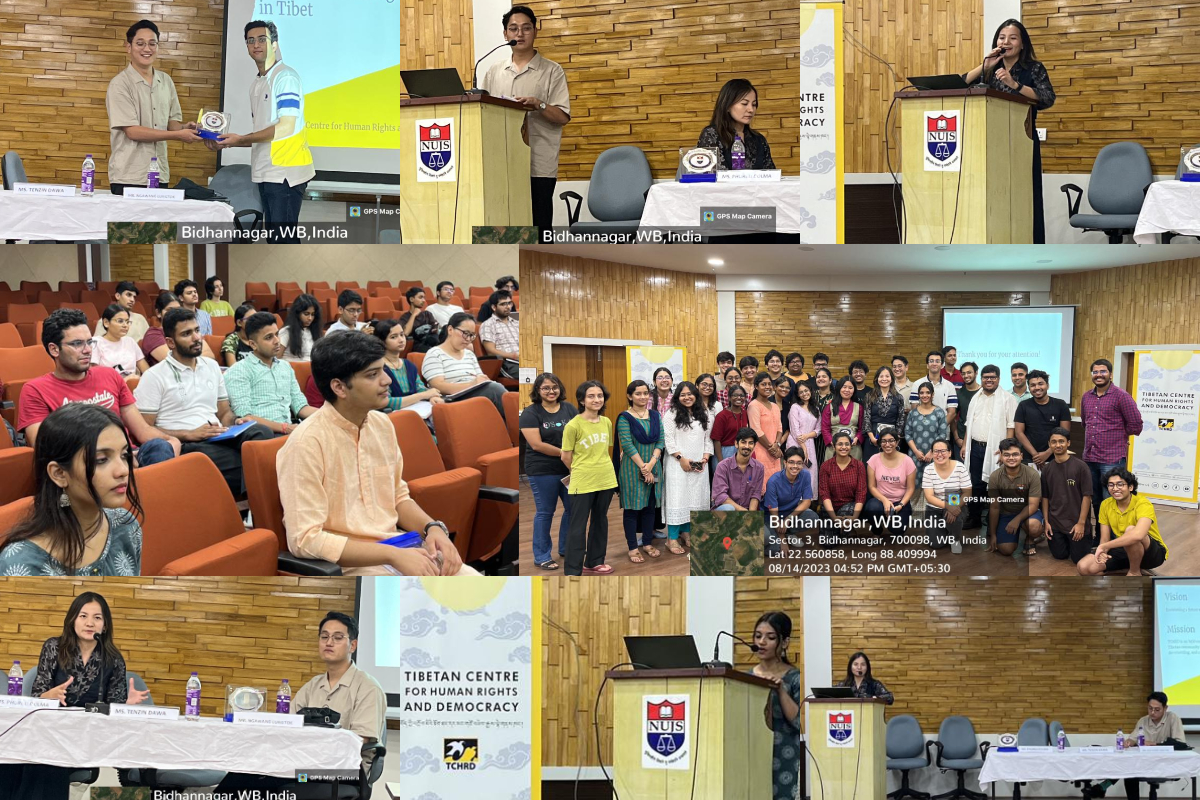The Tibetan Centre for Human Rights and Democracy (TCHRD) is a non-governmental organisation that was founded in 1996 in Dharamshala, India. Its primary focus lies in addressing the manifold human rights challenges confronted by Tibetans, both within Tibet and across various global contexts. The scope of their activities encompass diverse realms, including raising awareness, conducting research and disseminating pertinent reports on the humanitarian crisis in Tibet, alongside organising workshops and undertaking advocacy initiatives.
During the proceedings, we were initially addressed by Tenzin Dawa, the Executive Director of TCHRD. She provided us with a succinct overview of the organization’s nature and objectives, affording us insight into its operational mechanisms and the prospects of joining their cause in advancing human rights.
Subsequently, Ngawang Lungto, a researcher at TCHRD, delved extensively into the prevailing situation within Tibet and elucidated upon why our informed engagement in the corresponding discourse is imperative.
He prompted us to ponder the question, “How would you define Tibet?” He then proceeded to delineate the contrasting perspective of Tibet as perceived by China. He underscored the plight of Tibetans who continue to endure the infringement of their fundamental human rights, rendering them bereft of suitable avenues to air their grievances. This dire circumstance has compelled some to resort to self-immolation as a poignant form of protest. Mr.Lungto expounded on the pervasive censorship and surveillance permeating all facets of Tibetan life, resulting in the curtailment of freedom of expression, religion, education, and other essential rights. Drawing an analogy to the colonial rule of the British Raj in India, he drew attention to the exploitative practices undertaken under the guise of “development.” Furthermore, he highlighted the denigration of indigenous Tibetan cultural practices as “uncivilised” and the unabated exploitation of natural resources. With Independence so close, his impassioned discourse resonates deeply, underscoring the parallels between the present and the past.
Lastly, Phurbu Dolma, a legal officer at TCHRD, facilitated an interactive session, enabling students to pose inquiries and receive forthright and incisive insights into the contemporary status quo. The array of questions spanned from media manipulation to inquiries about the Dalai Lama, all of which were addressed comprehensively.
As the session concluded, each participating student departed with substantial intellectual nourishment concerning their prospective roles as future architects of societal change. Armed with heightened sensitivity and empathy, they now stand better equipped to manifest more enlightened and compassionate versions of themselves.
The report has been prepared by Sriya Surestti, First year.
The visit of Tibetan Centre for Human Rights and Democracy on 14th August 2023










 Users Today : 598
Users Today : 598 Users Last 7 days : 4743
Users Last 7 days : 4743 Total views : 1106181
Total views : 1106181